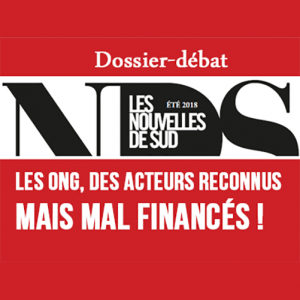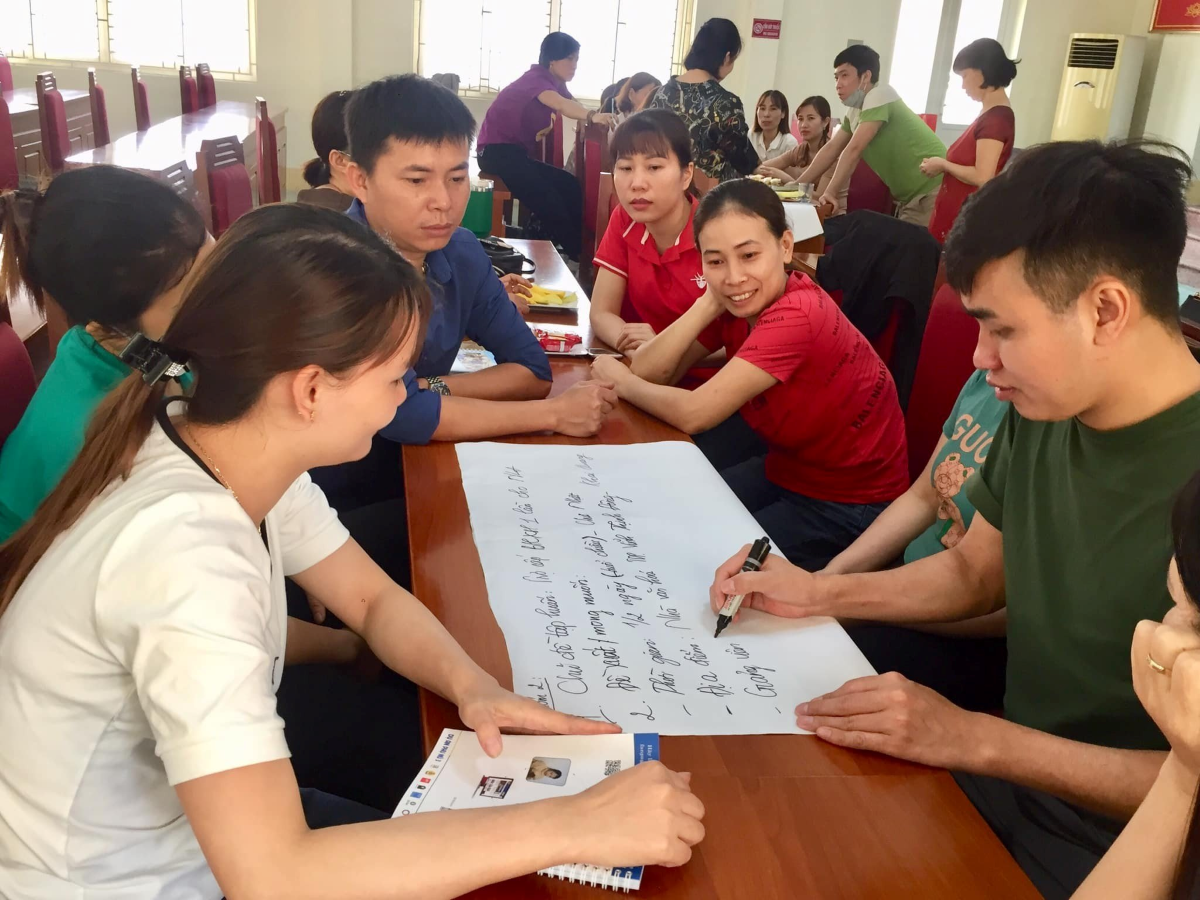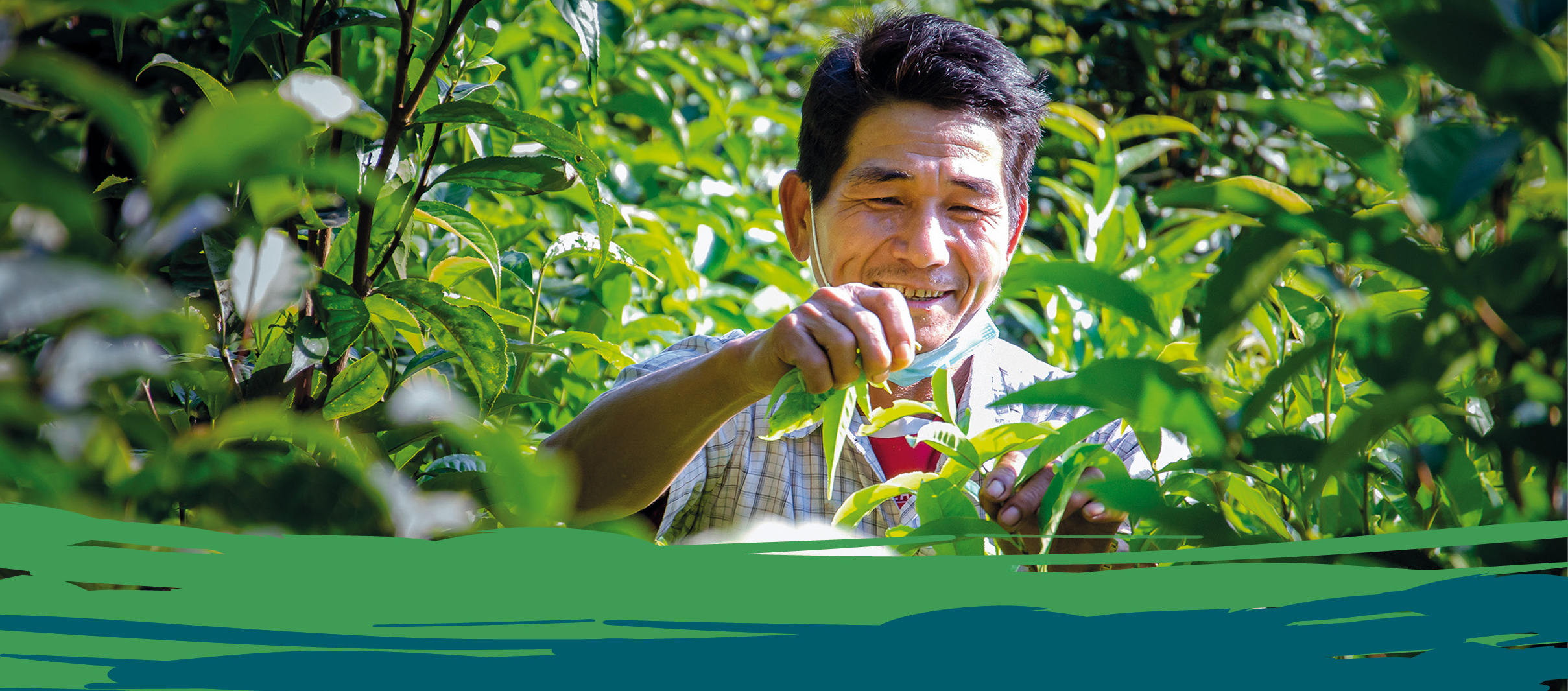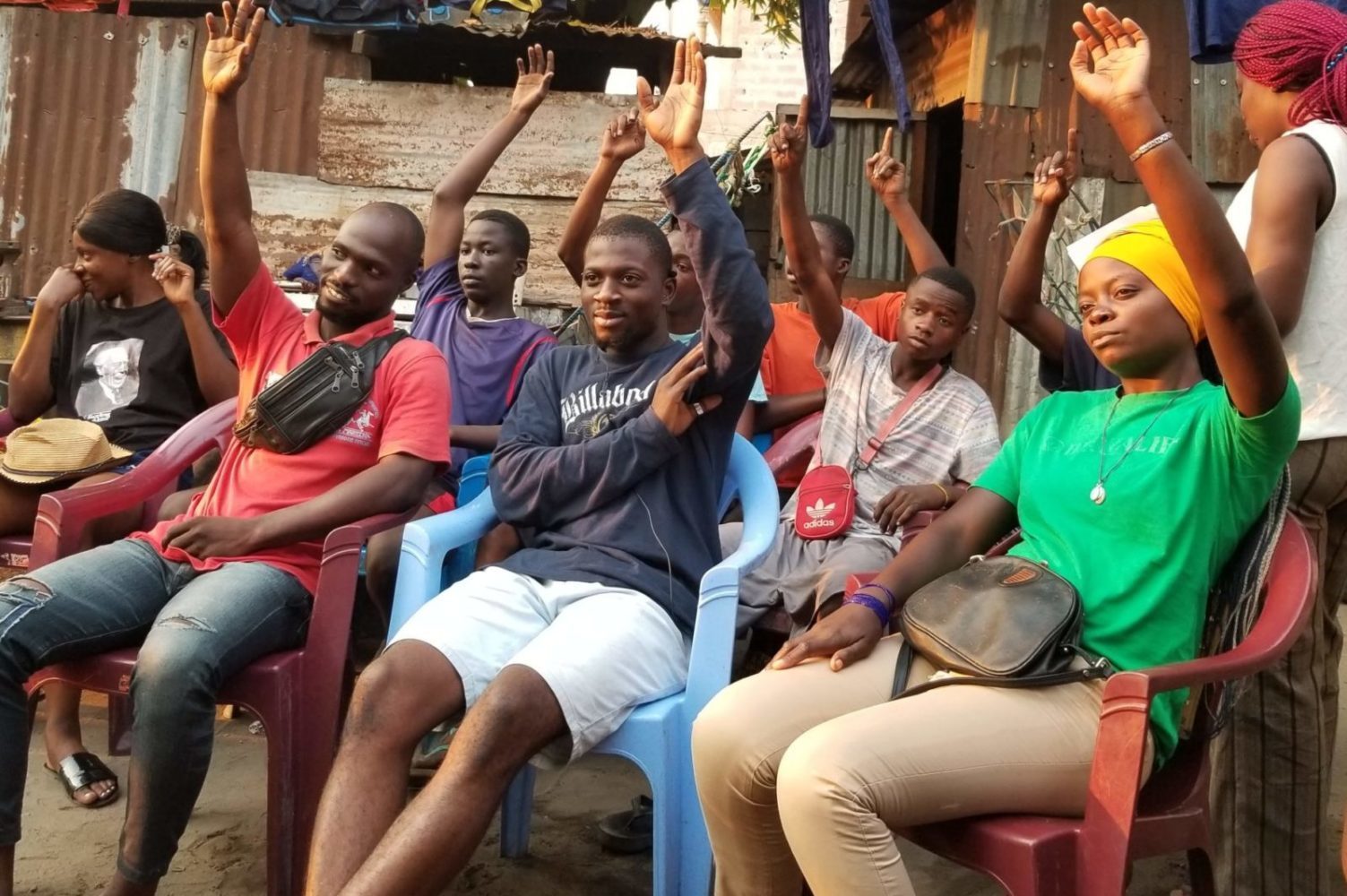Coordination SUD (in French), an association bringing together French international solidarity NGOs, published a « dossier-debate» on funding difficulties experienced by NGOs, written by Olivier Bruyeron, director of GRET and administrator of Coordination SUD for Groupe initiatives (in French), and Jean-Luc Galbrun, head of mission for Coordination SUD.
Despite the recognition afforded by public authorities to the role of NGOs, French public funding has yet to evolve significantly. Coordination SUD opted to back a proactive trajectory of French official development assistance transiting through NGOs for real partnership with civil societies.
The pertinence and effectiveness of NGOs’ action have been formally recognised via numerous strategic frameworks defined by French public authorities or international organisations. The Transversal intervention framework of Agence Française de Développement (AFD) with civil society organisations (CIT-OSC 2018-2013) highlights their expertise and their role as central stakeholders in the areas of development and the fight against poverty. The policy orientation document relating to the partnership between the Ministry of European and Foreign Affairs and civil society (March 2017) recognizes in particular the decisive action of NGOs when States do not have the capacity to intervene. The AFD’s « Vulnerabilities to crises and resilience » strategy considers NGOs as natural partners to act in situations of vulnerability and crisis. In its report on assistance to civil society organisations (2018), the OECD states that assistance to NGOs and assistance channelled via NGOs is essential for the improvement of economic, social and political conditions in developing countries, particularly as part of sustainable development.
In France, the portion of Official Development Aid (ODA) transiting through NGOs remains critically low. In 2016 it was still just 186 million euros, which only represents 2.8 % of overall ODA, positioning France in the lowest ranking countries of the OECD’s development assistance committee, just ahead of South Korea, Japan, Hungary and Greece, and way below the average of donor countries (14,9 %). Hence, the majority of French public funding schemes are saturated and are only capable of funding some projects submitted by NGOs, with cofounding levels very rarely exceeding 50 %. Ultimately, French public funding (national and territorial) only represent about 10 % of NGOs’ resources. NGOs are therefore obliged to count mainly on European or international public funding schemes and to draw largely from private funding from public generosity or foundations.
Procedures that are still restrictive
Apart from the lack of resources, funding schemes being implemented are increasingly restrictive. The latter include time-consuming procedures and numerous control stages (regular reporting, audits), some of which take place before or after the period of eligibility of expenditure. Whereas administrative expenses and indirect costs are severely limited. NGOs must therefore increasingly mobilise their staff for these aspects and manage increasing contractual risks, without having sufficient room to maneuver to suitably finance this. All this within often risky and highly variable contexts. Ultimately, this can only have a negative impact on the operational quality of actions and staff motivation in our structures. This must be solved.
Furthermore, some French public fund donors are tempted to mobiliser NGOs as operators working for the national cooperation policy rather than as independent organisations backing the right of initiative. NGOs are not sufficiently recognised for their indepth knowledge of needs and their capacity to develop pertinent, effective and efficient actions in partnership with local stakeholders. Highly restrictive calls for proposals therefore prevail over open calls for projects or projects developed one-on-one making it possible to fund actions identified by NGOs with their partners.
Increasingly significant challenges and needs
In parallel, climate changes, armed conflict and growing inequalities generate increasingly critical and frequent environmental, economic and humanitarian crises necessitating more substantial resources for NGO stakeholders. Confronting the trend towards populism and nationalism observed in many continents also requires resources. In light of this, support for action and structuring of civil society organisations is crucial because they work jointly for a more stable and peaceful world. This support requires donors to depart from a short-term project logic, and to engage in long-term partnership with civil society, which must take account of the difficulties and successes encountered.
In response to these challenges and the sustainable development goals, Coordination SUD (in French) defined an ambitious trajectory for French public funding transiting through French NGOs. This trajectory sets the target at a minimum of one billion euros by 2022. It aims to promote systems for supporting NGO initiatives such as: scheduled food aid (at least40 million euros), the Humanitarian relief fund (at least 170 million euros), the Stabilisation fund – NGO initiative portion (at least 50 million euros), volunteering (at least 40 million euros) and lastly the AFD‘s « Initiatives-NGO » (at least 400 million euros). The one billion euro target may seem substantial, but with regards the needs previously described, it will only cover part of these. In addition, even if France progresses significantly, it will remain way below what other member countries of the OCDE DAC are doing with regards their NGOs. In 2022, if this trajectory is respected, the percentage of French official development aid transiting through NGOs will reach approximately 7 %, still way behind the DAC countries’ average, which can only increase between now and 2022 to rise above 15 %.
New procedures for partnership with civil society
French public authorities must now evolve towards strong, fair partnership with civil society, both in France and in countries of operation. This partnership must be based on dialogue enabling debate and co-construction. Diagnoses of needs and the causes of inequalities, poverty and crises must be jointly conducted to develop joint strategies involving civil society organisations. The new terms of this partnership must take account of relationships and structuring of civil society at all levels: local, national and international. Strong, lasting partnership links exist between stakeholders in the various continents, who discuss their respective environments, share their practices, support each other mutually and implement joint projects. These links are organised around a logic of representation at national, regional, and international level via networks or collectives, as well as a logic of complementarity between stakeholders (advocacy, mobilisation, operational role in the field). This new partnership between public authorities and civil society must be the subject of financial investment to support projects and structuring of stakeholders, as well as a more qualitative investment to facilitate the relationship. The latter can be achieved through strengthening staff in the institutions concerned (ministries, cooperation agencies, etc.) to ensure better definition, management and monitoring of projects, and to enable discussions on the more global aspects of analysis of challenges and need for definition of multi-stakeholder strategies.





